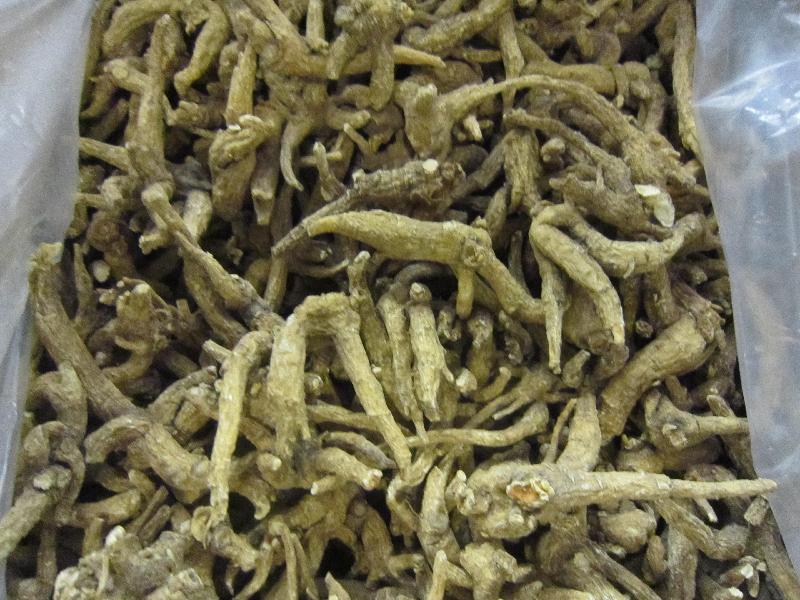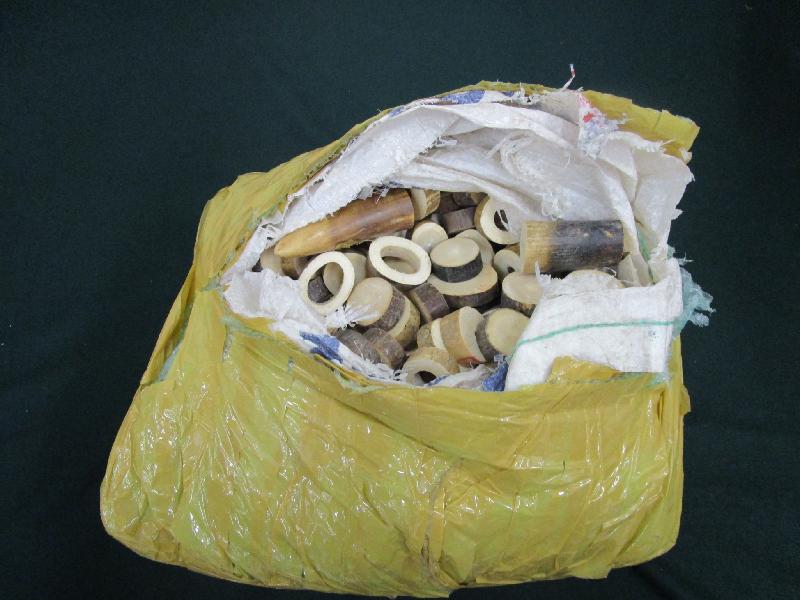Hong Kong Customs and the Agriculture, Fisheries and Conservation Department (AFCD) mounted a 10-week joint anti-endangered species smuggling operation codenamed "Defender" at the airport, seaport, land boundary and railway control points from June to August.
The operation started on June 18 and concluded on August 25. During the period, 118 cases were detected, resulting in the seizure of various suspected endangered species with an estimated market value of about $19 million and the arrest of 82 persons, including five arrests made during the follow-up investigation.
In particular, Customs seized a total of 63 tonnes of suspected endangered tree logs found in three inbound containers. Seven tonnes of pangolin scales and six tonnes of American ginseng were seized from another two inbound containers. Apart from these, 10 live turtles hidden among socks declared as "shoes and toys" and five live lizards in cereals declared as "toys and chocolate" were also found in two arriving express parcels.
Other items of suspected endangered species seized include 85 live frogs, 317 kilograms of dried seahorses, 1 500 grams of scheduled coral and 25 kilograms of worked ivory.
"The joint operation was a great success. It is also a vivid demonstration of how the two departments' close co-operation effectively targets the activities of endangered species smuggling," the Head of Ports and Maritime Command of Customs, Mr Chan Tsz-tat, said in rounding up the operation today (September 5).
"Facing the endless smuggling tactics, Hong Kong Customs will stay vigilant and strengthen its efforts in intelligence collection and analysis for even more effective enforcement. Similar joint operations will be undertaken," he said.
"Advanced equipment will be introduced to step up screening and inspection, while intelligence exchanges and regular joint operations with local, Mainland and overseas law enforcement agencies will also be maintained for anti-smuggling purposes."
The Endangered Species Protection Officer (Enforcement) of AFCD, Mr Timothy Lam, added that the Protection of Endangered Species of Animals and Plants (Amendment) Ordinance 2018 has been effective since May 1 this year and penalties have been drastically increased. Any person importing, exporting or possessing endangered species not in accordance with the Protection of Endangered Species of Animals and Plants Ordinance will be liable to a maximum fine of $10 million and imprisonment for 10 years, while the seizures will be forfeited upon conviction. Members of the public are urged not to break the law.
Members of the public may report any suspected smuggling activities to the Customs 24-hour hotline 2545 6182 or its dedicated crime-reporting email account (crimereport@customs.gov.hk).





